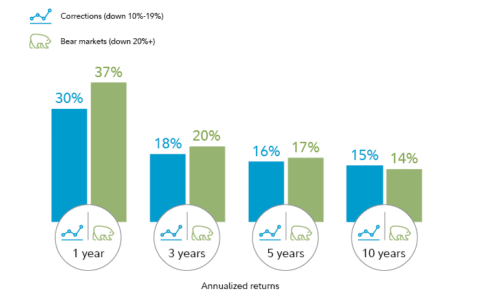
Property taxes are a necessary evil for many of us, but as these taxes rise in some areas, we need to be aware of the ways to protect our wallets. In this article, you’ll gain insight into when it’s time to appeal a tax assessment and how to present your case. Whether you’re looking to lower your bill or just stay ahead of rising property taxes, this article will provide everything you need to know!
Introduction to Property Taxes
Property taxes are one of the most common forms of taxation in the United States. They are typically imposed on real estate by state and local governments and are based on the value of the property.
Property taxes can be a significant expense for homeowners, especially if the value of their property has increased significantly. Fortunately, there are a number of ways to reduce the amount of property tax you owe.
The first step is to understand how your property tax bill is calculated. The assessment method used by your municipality will determine how much tax you owe. There are three common methods of assessment: actual value, assessed value, and market value.
Once you know how your municipality assesses properties for taxation, you can begin to take steps to lower your bill. If your assessment is based on actual value, you may be able to appeal it if you believe the appraised value is too high. If your assessment is based on market value or assessed value, there are a number of ways to lower it. These include:
- -taking advantage of homestead exemptions
- -transferring the property to a family member
- -participating in a tax abatement program
- -prepaying your taxes
Reasons Why Property Taxes Go Up
Property taxes are one of the many things that can go up over time. They’re also something that you have little control over as a homeowner. But, there are steps you can take to minimize the impact on your wallet. Here’s everything you need to know about property taxes and how to keep them from rising too much.
There are a few reasons why property taxes might go up. One is simply because the value of your home has gone up. This happens as the market changes and property values in your area increase. The tax assessor will reassess your home’s value every few years and adjust your taxes accordingly.
Another reason your property taxes could go up is because the tax rate itself has changed. This is set by local government officials and can be raised or lowered depending on their budget needs. You’ll usually see this happen when there are big projects happening in your town or city, like a new school being built. The extra revenue is needed to cover the costs of these projects.
As a homeowner, there isn’t much you can do about increasing property values in your area. However, you can stay informed about what’s happening in your local real estate market so you have an idea of what to expect when it comes time for your next assessment. You can also keep an eye on the tax rates in your municipality to anticipate any increases that might be coming down the line.
If you do find that your taxes are going up, you may be able to appeal the decision. This is especially true if you think the assessment of your home’s value is inaccurate or that the tax rate is too high. You can contact your local tax assessor and provide proof that you think justifies a lower assessment or tax rate.
How to Appeal a Tax Assessment
If your property taxes go up, you have the right to appeal the assessment. The first step is to contact your local assessor’s office and request an informal review of your assessment. You’ll need to provide supporting documentation, such as recent appraisals or sales data for similar properties in your area.
If you’re not satisfied with the outcome of the informal review, you can file a formal appeal with your municipality’s Board of Equalization or Assessment Review Board. You’ll need to submit a written request, along with any supporting documentation, within a specified timeframe. Once your appeal is filed, a hearing will be scheduled. At the hearing, you’ll have the opportunity to present your case and argue why your assessment should be lowered.
If you’re still not satisfied with the outcome of the hearing, you can file an appeal with your provincial or territorial court.
Ways to Lower Your Property Tax Bill
There are a few different ways that you can go about lowering your property tax bill. The first way is by fighting your assessment. If you believe that your home was assessed at too high of a value, you can file an appeal with your local assessor’s office. You will need to provide evidence to support your case, such as comparable sales prices for similar properties in your area.
Another way to lower your property taxes is by taking advantage of any exemptions or abatements that you may be eligible for. For example, many seniors and veterans are eligible for exemptions on their property taxes. You will need to check with your local assessor’s office to see what exemptions are available in your area.
Finally, you can also try negotiating a payment plan with your municipality if you are having trouble paying your property taxes in full. Many municipalities are willing to work with taxpayers who are struggling to pay their bills. This option may not be available in all areas, so be sure to check with your local assessor’s office to see if it is an option where you live.
Steps for Making Your Case in an Appeal
If you think your property taxes are too high, you can appeal the assessment. Here are a few tips to make your case:
1. Gather evidence. This may include comparable sales of similar properties in your area, or photos of your property showing any physical features that you believe lowers its value.
2. Make your case to the assessor. This is the person who originally determined your property’s value for tax purposes. You will need to explain why you believe the value is too high, and provide any evidence you have gathered.
3. If the assessor does not agree with you, appeal to the Board of Equalization (BOE). The BOE is a state-level agency that hears appeals of property tax assessments. You will need to fill out an application and submit any evidence you have gathered in support of your case.
4. Attend the hearing. At the hearing, both sides will present their cases and answer questions from the BOE members. You may want to bring witnesses or experts to testify on your behalf.
5. Be prepared for a long process. The entire appeals process can take several months, so be patient and keep gathering evidence if necessary.
Tips for Negotiating with Tax Assessors
If you’re a property owner, chances are you’ve been hit with a property tax bill that’s much higher than you were expecting. And if you’re like most people, you probably have no idea how to negotiate with your tax assessor to get that bill lowered.
Here are a few tips to help you out:
1. Do your homework – Before you even start negotiating with your tax assessor, it’s important that you do your homework and know exactly what your property is worth. This way, you’ll have a good starting point for negotiation.
2. Be polite and professional – It’s important to remember that the person you’re dealing with is just doing their job. Be polite and professional in your interactions, and you’ll be more likely to get what you want.
3. Don’t be afraid to ask for what you want – When it comes down to negotiation, it’s important to be assertive and ask for what you want. If you don’t ask, the answer will always be no.
4. Be prepared to compromise – In any negotiation, there needs to be some give and take from both sides. Be prepared to compromise in order to reach an agreement that works for both of you.
How to Manage Your Property Tax Debt
If you’re like most Americans, you’re probably not too thrilled about the thought of having to pay property taxes. Unfortunately, as a homeowner, it’s something that you can’t avoid. Property taxes are usually based on the value of your home and can go up each year, so it’s important to be prepared.
There are a few things you can do to manage your property tax debt and keep it from getting out of control. First, make sure you’re aware of how much your property taxes are going to be each year. This way, you can budget accordingly and make sure you have the money set aside when it’s time to pay.
If your property taxes go up unexpectedly, there are a few options for managing the debt. You can try to negotiate with your local tax assessor for a lower rate, or you can look into getting a loan or line of credit to cover the amount owed. Whatever route you decide to take, make sure you stay on top of your payments and don’t let the debt get too far out of hand.
Conclusion
Property taxes can be a large expense, but luckily there are ways to help protect your wallet from the rising costs. Whether you choose to appeal your property assessment or take advantage of other local tax exemptions and credits, you have options available that may help reduce the amount of money required for these taxes. It’s important to stay informed on all the laws related to property taxes in order to make sure you’re taking full advantage of any benefits that may be available in your area.
Author:Com21.com,This article is an original creation by Com21.com. If you wish to repost or share, please include an attribution to the source and provide a link to the original article.Post Link:https://www.com21.com/how-to-protect-your-wallet-from-rising-property-taxes.html










